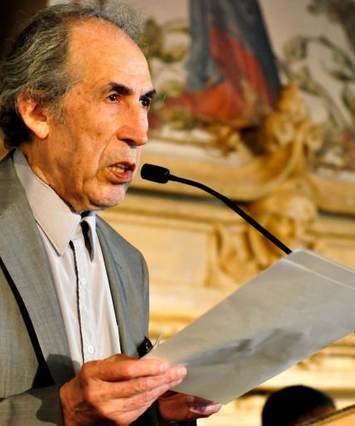I see no way of achieving daily bread for all without a world trade market which is genuinely open.
By MOHAMED SAHNOUN
In my culture, as in most other cultures, we wish somebody well when we wish them peace, daily bread and good health. These three things embody humanity's greatest longings. The main precondition for peace, or comprehensive security as some call it, is good global governance, with a more dynamic strategy for conflict management.
I see no way of achieving daily bread for all without a world trade market which is genuinely open, and a collective effort to check poverty both at home and abroad, as set by the Millennium Development Goals.
Thirdly, when we talk of a long healthy life on Earth, what we actually mean is the protection of the environment. This can be achieved, in the view of environmentalists, by tackling the population issue in the developing world, and by addressing over-consumption in the developed world, in particular that of energy.
Insecurity
The three issues have to be addressed together. We cannot make progress in one area without progressing in the others. But let me elaborate a little on the first of these--peace.
It is easy to understand the frustrations, the scepticism and the despair of so many people around the world. Some have given up hope and see no way to achieve change through the ballot box. Some try to change their situation through revolt and armed struggle. And many are in total disarray and heed the voices of extremism, fundamentalism, and terrorism. The dramatic events of 9/11 made clear that we should not minimise these dangers.
In one sense, however, comprehensive security should be less problematic now than before in this post Cold War era. Although a few regional and interstate tensions remain here and there, most of the conflicts today are internal but with the potential to expand beyond national borders. Most analysts agree on the causes of conflict. Simple insecurity is the most common one--when people sense they are about to be excluded, from power, from jobs, from resources, and feel threatened by starvation and total annihilation. These fears are often triggered by environmental degradation, systemic underdevelopment and a history of bad governance--corrupt regimes, the legacies of colonial divideand- rule practices and the Cold War superpowers' support of dictatorships which they perceive to be loyal allies.
Local intervention
The end of the Cold War brought a new era of mediation, peace building, reconstruction and multilateralism. Yet we are now in danger of losing sight of these achievements, while the West's role in Iraq has raised fresh debates about the proper conditions for humanitarian intervention.
The International Commission on Intervention and State Sovereignty, on which I served, concluded that the international response to humanitarian threats should be based on the 'responsibility to protect' rather than the 'right to intervene'. And when the governments concerned fail to shoulder this responsibility, the best institutions to do so are those closest to the affected areas. Decentralising and empowering should be the accepted principles for conflict prevention. The conflict management process should be as close to the people as possible--the best interveners are always local.
Having dealt myself with conflicts in the African Great Lakes region, Somalia, the Ethiopian-Eritrean dispute and Sudan, I can testify how helpful it is to be able to rely on local non-governmental organisations, and on traditional mechanisms such as community elders. Yet little is being done to enhance these institutions in terms of their resources and management capacity.
Those that depend on international funding need more resources if they are to play a more useful role as an early warning system for famines, droughts and civil wars. They will also need more expertise and training if they are to analyse early warning signals and plan timely responses.
Close co-operation between the UN, multilateral agencies, regional organisations and civil society groups would increase our ability to check humanitarian tragedies, as well as giving root to good governance. In the end, both politically and financially, it would cost all of us a lot less.
Meanwhile, peacemakers everywhere must work tirelessly for the kind of change which can free human beings from fear, insecurity and selfishness. Let us help, counsel and support one another, and may our striving for peace--both internal and external--prove so strong that it becomes a door at which people knock to share in our aspiration.
Mohamed Sahnoun has served inter alia as Adviser to the President of Algeria on diplomatic affairs; Deputy Secretary-General of the Organisation of African Unity (OAU); and Deputy Secretary-General of the League of Arab States. He served as Algeria's Ambassador to the United States, France, Germany and Morocco, as well as the United Nations.
He is currently UN Secretary-General Kofi Annan's Special Adviser on developments in the Horn of Africa region. January 2007 marks the beginning of his presidency of the International Association of Initiatives of Change.



